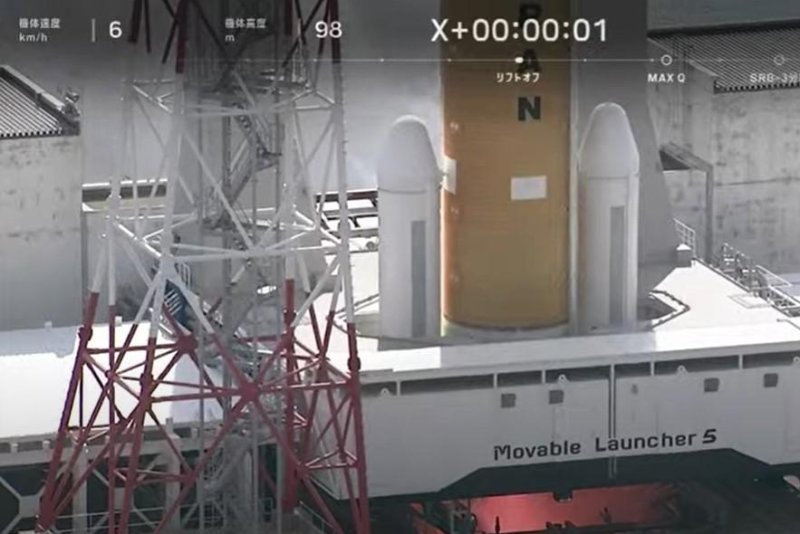1 of 4 | Japan on Thursday aborted the launch of its next-generation H3 rocket. Photo courtesy of JAXA
Feb. 16 (UPI) -- Japan on Thursday aborted the launch of its next-generation H3 rocket.
An English translator for the Japan Aerospace Exploration Agency, which was broadcasting the launch, said that the main engine fired at around 8:37 p.m. EST at the Tanegashima Space Center, located on the island of Tanegashima, south of Kyushu.
Moments later, the translator provided an announcement that informed the SRB-3, the Solid Fuel Rocket Booster, did not ignite.
Video from the broadcast showed smoke rising from the bottom of the rocket, but it did not rise from the launch pad.
"It will take longer to examine the situation," the translator said.
JAXA announcers said that they would continue the broadcast will officials tried to determine the cause of the situation.
The agency has spent the last decade working with Mitsubishi Heavy Industries to design and build the new H3 launch vehicle.
The new "high-flexibility" flagship vehicle can carry more than 4 tons to a 10-mile-high orbit, according to its description, and can be construed into multiple configurations.
Thursday's flight was being called a test flight, however the rocket was expected to carry an operational payload with the JAXA's Advanced Land Observing Satellite-3.
The goal was to deliver the 3-ton ALOS-3 satellite to a sun-synchronous orbit.
When delivered, the satellite will eventually contribute data to help in disaster monitoring among other things.
"Its launch capability to the geostationary transfer orbit (GTO) will be the highest ever, exceeding that of the existing H-IIA and H-IIB Launch Vehicles," the agency said in a statement.
"The observed data from ALOS-3 is expected to lead to progress in the various fields due to its unique imaging capabilities; it will make a significant contribution to upgrading global geospatial information and research and application for monitoring of the coastal/vegetation environment," according to the agency's description.
Earlier this month, JAXA astronauts and their NASA counterparts conducted a spacewalk from the International Space Station to upgrade the station's power generation systems.















